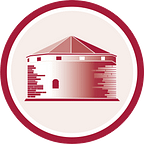Using Canada’s Voice at the UNSC
By Michael Ragotte
On the 17th of June, Canada lost the vote for a non-permanent seat on the United Nations Security Council (UNSC) in a three-way race against Norway and Ireland. This marks a significant step backwards within the Trudeau government’s ‘Canada is Back’ strategy, which involved committing to greater engagement with the UN. Now that the government failed to become a member of this influential body, how can Canada continue to engage in the world?
Between 1963 and 1971 Canada muddled through the difficult process of investigating bilingualism and biculturalism through a Royal Commission. This process influenced the Charter of Rights and Freedoms in Canada, where francophone linguistic and cultural rights were set in stone. This experience taught Canada a valuable lesson regarding the difficult process of bridging divides. It is with this knowledge and the need for the country to assert itself in the world, that Canada should act as a mediator within the Cameroon anglophone separatist crisis.
The Cameroonian anglophone separatist movement has destabilized the region, causing 500 000 internally displaced persons and over 40 000 refugees who fled to Nigeria. The separatist movement rises from a history of colonialism and subsequent overreach from the Cameroonian central government. Cameroon was initially colonized by Germany in 1884 but then Britain and France took over the country after World War I. From this moment, cultural differences began to grow, as Britain subjected the colony to a decentralized, anglophone, common law system whereas France installed a strong, central, francophone state. In 1961 British and French Cameroon reunified, but these colonial legacies would ignite conflict over the next 60 years.
When Paul Biya, the current president, succeeded President Ahmadou Ahidjo, the anglophone community rejoiced as he promised reform and the end of repression. Unfortunately, Biya did not keep this promise. Throughout the 1980’s, Biya conducted activities including: jailing anti-government writers, banning books and eliminating anglophone radio programs that criticized his policies. Furthermore, economic hardship in the 1990’s worsened the situation. Cameroon’s economy was hit hard due to an over-reliance on cash-crops; the prices of oil, coffee and cocoa took a sharp downturn causing Cameroon’s currency to depreciate by 40% against the USD. This economic hardship further worsened existing resentment felt within anglophone communities. Rumours of election rigging sent them into a fury as the ‘open secret’ was that if the anglophone candidate, John Fru Ndi, would have been a francophone, he would have won.
In 2016, pent-up resentment turned violent and numerous anglophone militias began fighting government forces. In 2017, The Southern Cameroons Ambazonia Consortium United Front (SCACUF), declared the independence of Ambazonia, comprising of North and West Cameroon.
Within the international community, the Cameroon central government has become increasingly isolated. France recently distanced itself from the country due to allegations of government security forces participating in human rights abuses. Even the Trump administration has punished Cameroon due to this excess use of force by cancelling some military assistance. Unfortunately, the European Union and Africa Union have stayed relatively quiet on this issue. Canada, now, has an opportunity to act.
Canada and Cameroon share many cultural characteristics. Both countries were colonized by England and France and therefore are both members of the Commonwealth and la Francophonie. Although this relationship is different for Canada as we carry on the colonialist legacy, important similarities remain. Both countries have struggled with linguistic differences due to the dissimilar culture, systems, governance and language brought by the two colonial powers. Both countries have experienced violent conflict due to these divides; in Canada this includes the Louis Riel 1885 rebellion, violent confrontations between anglophones and francophones during World War I and II over conscription rights, and the infamous Front libération du Québec (FLQ) terrorist attacks in 1970.
Canada should table a proposal at the UN to act as an intermediator in Cameroon. It would likely pass a UNSC vote as there is little interest in any of the permanent council members, aside from France, in the country. France is increasingly bogged down with Operation Barkhane and therefore the former colonial power would welcome some assistance. Canada has experience working through linguistic differences and cultural oppression and with two willing parties, would be able to make progress at finding common ground. Canada has knowledge on this topic but this was not reached without great effort. The Canadian government included francophone rights in the Charter of Rights and Freedoms in 1982 almost twenty years after the Royal Commission on Bilingualism and Biculturalism. This allowed francophones in Canada to play a larger role within the federal government and climb to senior ranks in the bureaucracy. Without the enshrinement of francophone rights in the Charter, disenfranchisement would have continued, and the 1995 referendum of Quebec would have played out entirely differently.
One of the many reasons why the UNSC vote was lost was the lack of engagement by our country in different crises around the world. We should channel the disappointment in this loss towards a conflict where we can make a difference. The European and African Union have done little in Cameroon and the country’s most prominent ally, France, wants to see an end to the violence that has taken over the country. By using Canada as an intermediator and solving the anglophone security problem through diplomacy or traditional UN peacekeeping, Cameroon can turn its attention to the other violent conflict that is besieging the country: the fight against Boko Haram.
Michael Ragotte holds a Master of Public Administration from the Royal Military College of Canada and is currently a student at the Paris School of International Affairs, Sciences Po while he completes his Master of Advanced Global Studies Michael spent 9 years in the Canadian Armed Forces and will pursue a career in international affairs after his studies.
